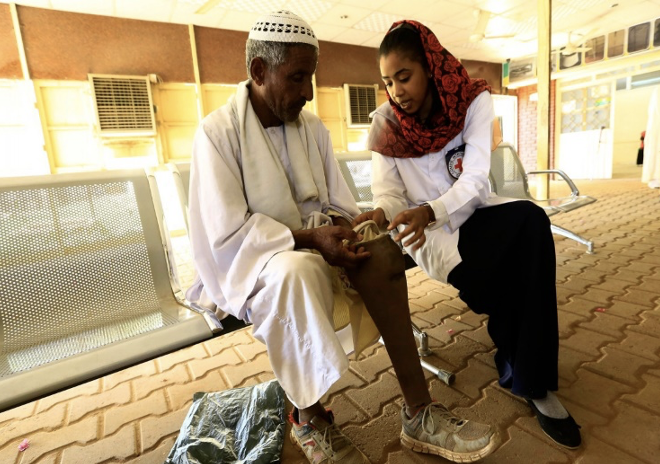By: Abubakr Elbashier, Pediatrics/Medicine Trainee
We have come a long way over the past few centuries, citizens of this earth have opportunities today that were once unimaginable. If you can afford it, you can live in a great neighborhood, go to the best schools, and get the best health care… “if”. Inequity and inequality exist at the local, regional, national, and global scale. We often ask what life would be like if we were born and bred in a different part of town, but what if you were born and bred in a different part of the world? What if you were born in Africa?
Fig 1: Map of countries by GDP (nominal) per capita in 2023. Notice Africa by far has the poorest countries in comparison.
https://en.m.wikipedia.org/wiki/File:Map_of_countries_by_GDP_(nominal)_per_capita_in_2023.svg
I come from Sudan, a country at war with itself. Seven to eight million people have been displaced since April 2023. Schools and universities are closed, doctors and nurses are being killed as they serve in hospitals that are out of basic medications. Up to 20 per cent of Sudan's estimated population of 40 million are believed to suffer from some type of disability, and their needs are not being met now more than ever. Our neighbors Ethiopia are seen as pioneers in the region for creating sidewalks that aide people with visual impairments in the capital (Addis Ababa), but as one person put it, “I always seek for help as I constantly fear that I would die and get injured while crossing roads and walking on the street. Unfortunately, the city is built without considering the needs of disabled people like me”. South Africa understood that some tourists have specific needs, in response they now have hotels, sightseeing spots, airports, and restaurants that are suitable for wheelchairs. Table Mountain, for example, has wheelchair access and a mile of walkways at the summit. Some beaches even have 'beach wheelchairs' that can be pushed over the sand and into the sea. But what about the South African’s that live outside the tourist hotspots?
Fig 2: A sudanese physiotherapist talks with a patient about his prosthesis. Open the link for more information and pictures. This picture was taken before the war but shows a fractured health care system, especially for people who are disabled.
https://www.icrc.org/en/document/orthopedic-sudan-disability-conflict-rehab-prosthetic-orthotics
Fig 3: This photograph shows people walking at the crossroads of the busy center of Ethiopia’s capital, where international events take place nearby. Notice on the bottom right corner of the picture, the yellow blind guide tactile paving. You will not find blind guide tactile paving outside this central part of the city. Some areas even lack pavements.
Fig 4: The private game reserve in Klaserie National Park, South Africa — became wheelchair accessible. The picture shows a tour guide helping a woman before going on a safari. This reserve has a portable pool hoist, (waiting beside the infinity pool), shower seats, commode chairs, grab rails, and an adjustable bed in the hotel. https://www.cntraveler.com/story/wheelchair-accessible-safari-south-africa
On a more personal level, my aunt has disabilities. She is hearing impaired, has severe scoliosis, and intellectual disability. Although I do feel like she lived a happy life, I often think about her not being given equal opportunities. She did not receive an education and lived for over 60 years as my grandmother’s helper. I wonder how different her life would have been if...
I say that to say, although we all feel like more can be done in the United States to people with disabilities, it’s worthwhile to know what is happening in other countries. I wish I had a magic wand, and grant every child that comes to my clinic the services that they need, from ABA to an IEP that meets all the child’s needs. I also wish that across the pond people with disabilities receive an education, accommodations, healthcare, equal opportunities, and most importantly, to be treated with dignity and respect.











